‘This conflict seems to have no end’
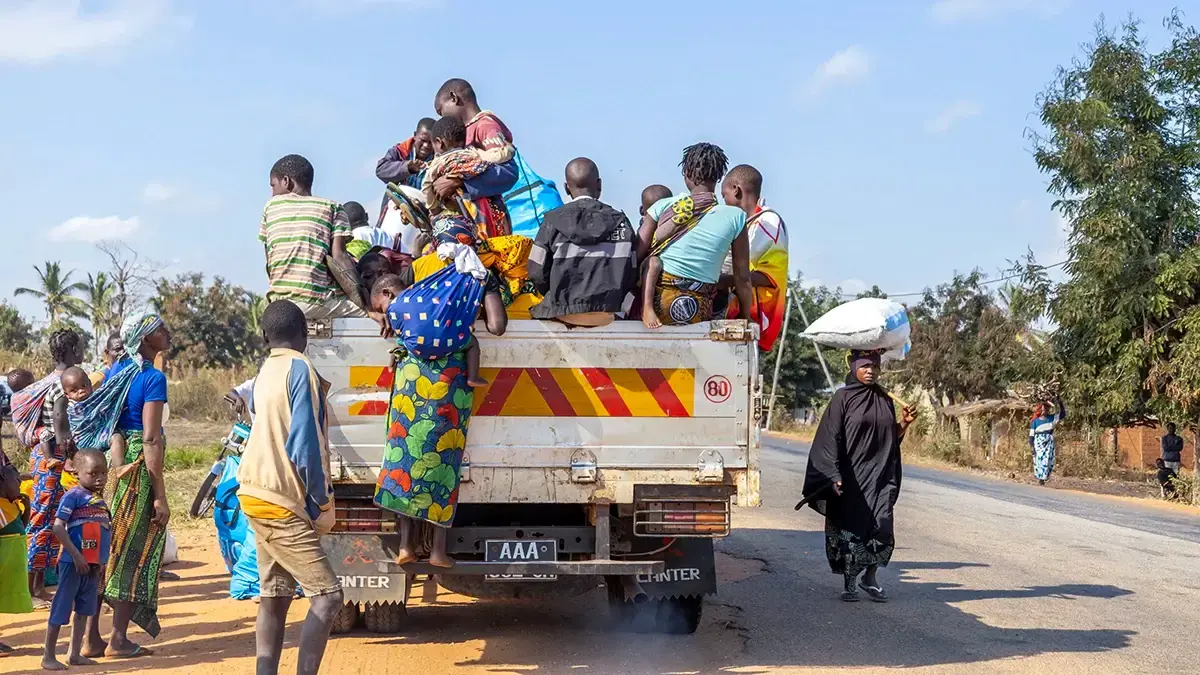
Following a series of attacks by an armed non-state group, the northern province of Cabo Delgado in Mozambique is experiencing the largest wave of displacement since February 2024. Official figures estimate that more than 50,000 people have been forced to flee their homes.
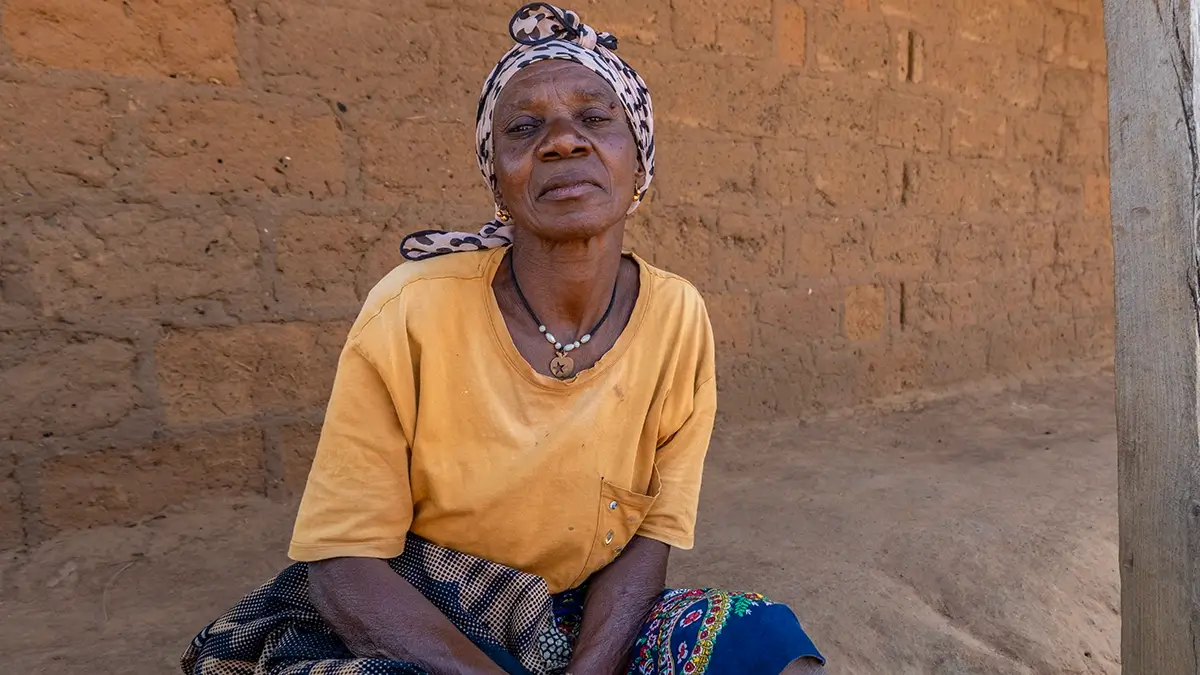
Entire families, including young children, pregnant women and elderly people with chronic illnesses, have fled in terror, walking for days to seek refuge in makeshift camps in extremely precarious conditions in the town of Chiure, with no idea what the future holds for them.
To help meet the most urgent needs, Médecins Sans Frontières (MSF) has launched an emergency response in two temporary resettlement centres. MSF calls for coordination and continued humanitarian efforts in places facing increased needs due to the latest displacements.
Cabo Delgado: an invisible crisis
Caught between conflict and natural disasters, entire communities in Cabo Delgado have suffered repeated displacement and ongoing trauma from the loss of their homes and livelihoods. Both displaced families and host communities are struggling to survive. Without immediate action, there is a risk of an even greater humanitarian catastrophe.
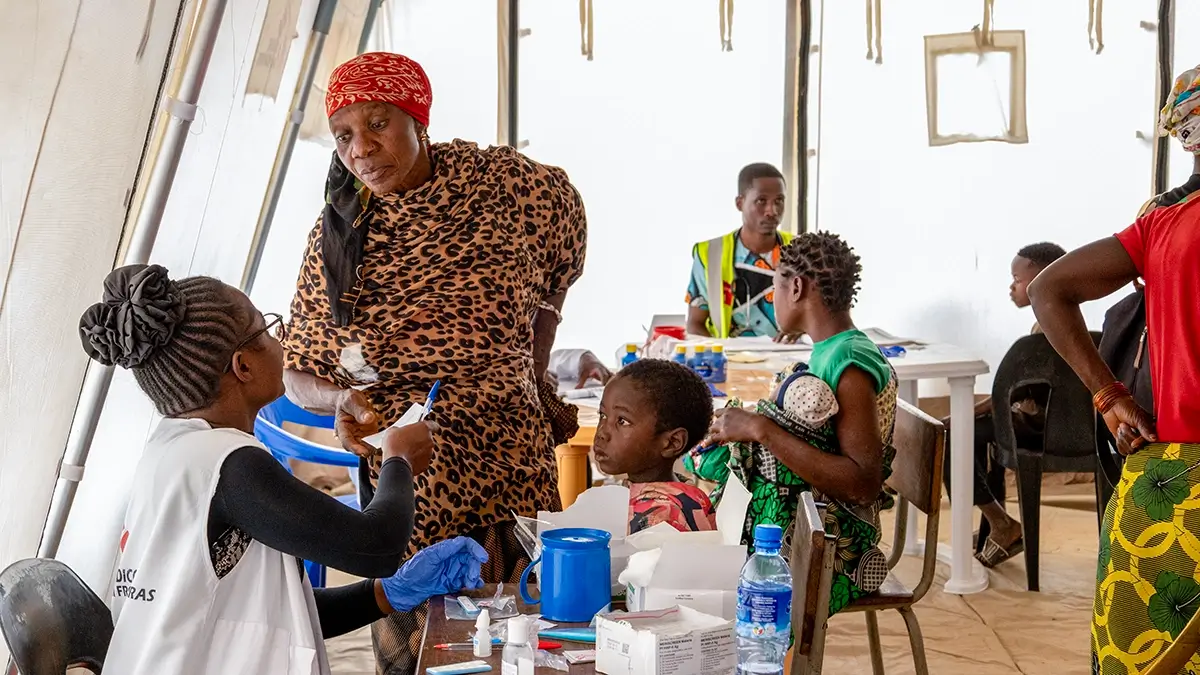
‘This crisis cannot remain invisible,’ says Sebastian Traficante, MSF general coordinator in Mozambique. ‘The impact of violence must not be normalised. More lives will be at risk and the health and dignity of thousands of people will continue to deteriorate. The population needs a coordinated, long-term humanitarian commitment that guarantees access to healthcare and basic services for all,’ adds Sebastian.
The prolonged conflict in Cabo Delgado has left a trail of invisible wounds. Many fear for their lives if they remain in their homes, but face enormous difficulties in meeting their basic needs, such as food, shelter and medical care, if they flee. This crisis is unfolding in an already extremely fragile context. Of the 16 health centres in the area, only six are functioning; the rest have been destroyed by extreme weather events, such as Cyclone Chido, which hit the province in December 2024, or by the armed conflict.
“When the attack happened, I was preparing my harvest to sell,” says Rosalina Maciel, who comes from the village of Ocua and fled after attacks devastated the region. “Then we heard gunshots and everyone started running. Now my whole village is gone, everything is ashes. We are registered here [in the resettlement camp], but we haven't received any food yet. My whole body hurts from sleeping on the ground, waiting. As soon as I get food, I will go back to my machamba [small vegetable garden]. What else can I do? This conflict seems to have no end."
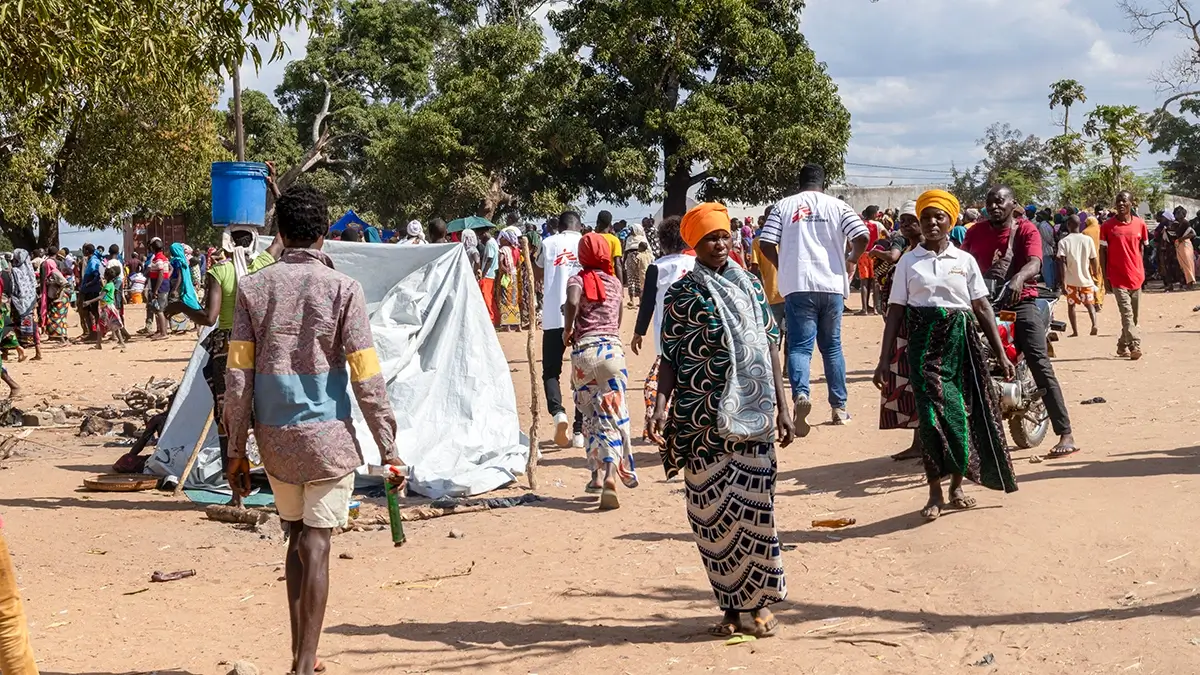
Rosalina's experience is similar to that of thousands of people uprooted by the recent resurgence of violence in southern Cabo Delgado. MSF teams have found that the most common symptoms among adults living in temporary centres are anxiety and hunger. Like Rosalina, people fear for their uncertain future, unsure how long they will remain in the resettlement centres, where they will be moved to, or what they will eat.
Cuts threaten humanitarian response
Organisations responding to medical needs in this emergency have used their remaining funds to support the Ministry of Health and provide assistance. However, due to recent cuts in international funding, their presence has been limited and their interventions are expected to end in August. This support was crucial. MSF was one of the first medical organisations to deploy staff to Chiure, where it launched an emergency intervention on 31 July in the neighbourhoods of Namicir and Micone.
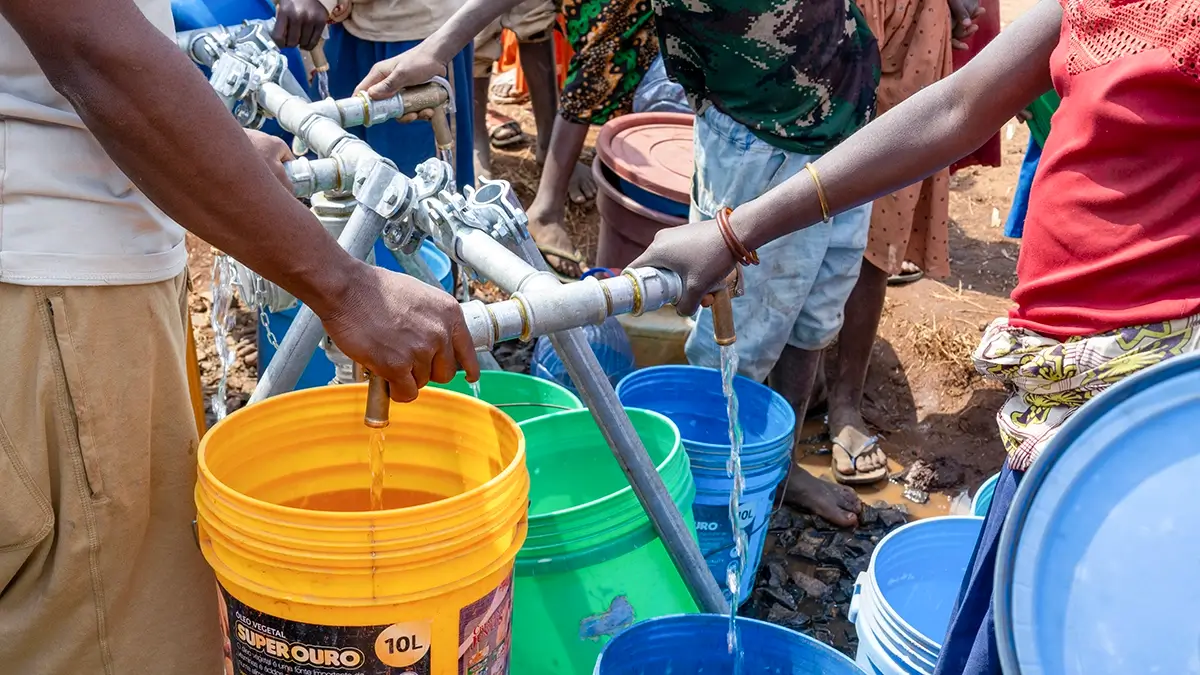
In coordination with the Ministry of Health, MSF teams are supporting two transit camps for displaced people with primary healthcare, mental health services, and water and sanitation resources, which are vital to prevent the spread of disease in makeshift and overcrowded shelters. Thousands of families recently displaced by violence are arriving in precarious conditions and urgently need food, shelter and medical care. When humanitarian aid is under severe pressure, MSF maintains its presence to provide vital support to those most affected.
In the first 15 days of the emergency response, MSF provided 4,509 medical consultations to adults and children, identified 31 cases of malnutrition, treated 380 children for malaria, facilitated group mental health activities reaching more than 4,000 people, and ensured the delivery of 600,000 litres of safe drinking water. Sexual and reproductive health teams conducted 397 prenatal consultations, including 281 first check-ups, highlighting the limited access to health services in these communities.
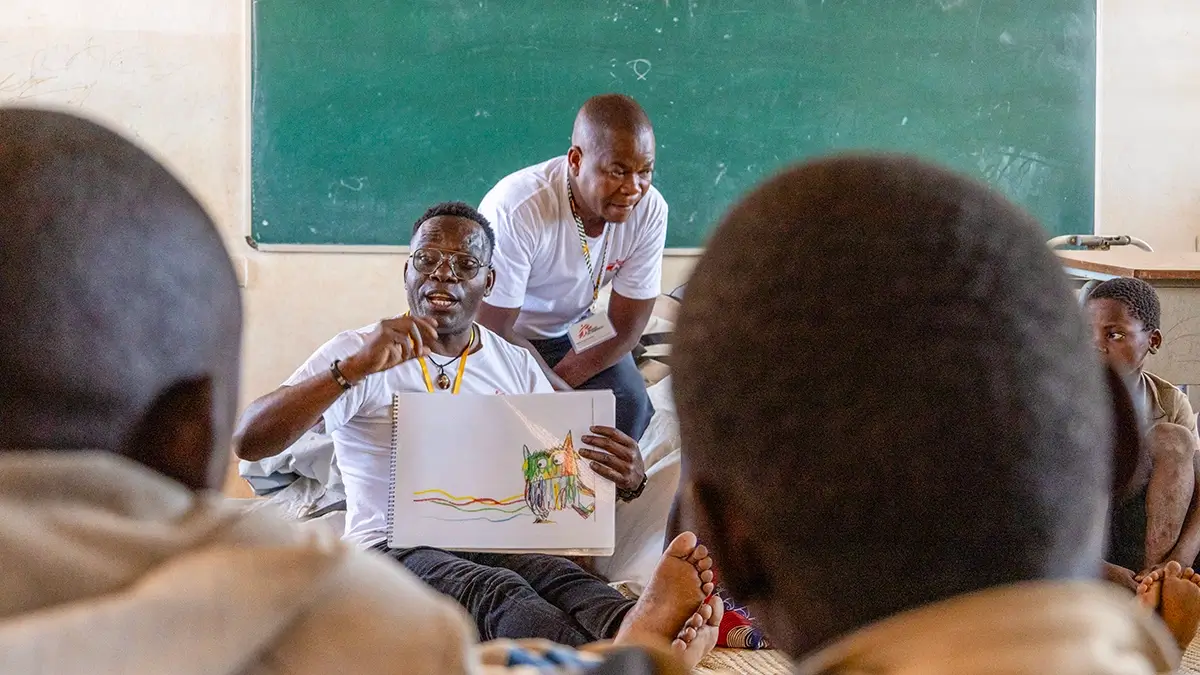
“Thanks to our financial and operational independence, MSF remains present and able to provide emergency medical care, mental health support and other essential services,” says Sebastián. “But the scale of the crisis far exceeds what any organisation can tackle alone, as violence and displacement push needs to unprecedented levels,” he concludes.
As of 20 August, the remaining families in Micone and Namicir are being transferred to regular resettlement centres in the town of Chiure. MSF remains committed to providing assistance and meeting the needs of those affected by the conflict.








